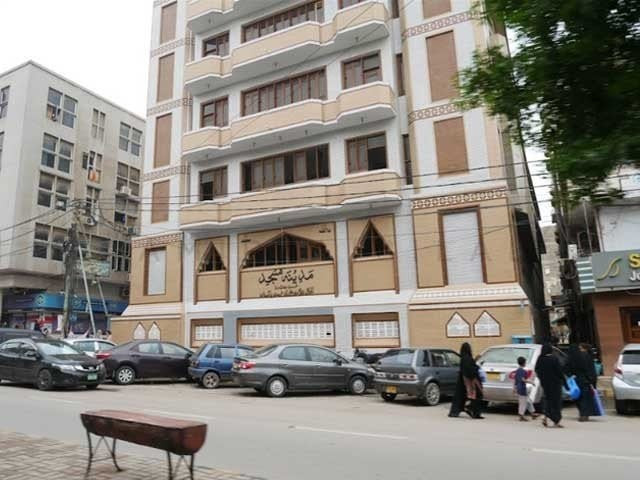SC rejects govt's plea against demolition of Madina Mosque in Karachi
Apex court gives Sindh government three weeks to submit report; adjourns hearing till January 13

The Supreme Court (SC) rejected on Monday the government's plea to stop the demolition of Madina Mosque in Karachi.
The country’s top court heard a case related to the demolition of encroachments in the metropolis wherein the attorney general appeared on behalf of the government and asked the apex bench court to reconsider the order to demolish the Madina Mosque on Tariq Road.
Last week, the Supreme Court (SC) had ordered to demolish a mosque, shrine and cemetery built on amenity parks' land near Tariq Road in Karachi.
“The court is requested to reconsider its December 28 verdict,” the attorney general said, adding that, “Religious tensions were rising due to the court's order and the demolition of the mosque was raising many questions.”
Chief Justice of Pakistan (CJP) Gulzar Ahmed remarked that the government could provide alternative land for the mosque, if it wants to, further telling the attorney general that "I have seen a park in the [mosque's] place with my own eyes".
The attorney general maintained that he knew it was the federal and provincial government's duty to provide land for the mosque. However, he insisted that the SC withdraw its order.
Read Encroachments in Cantt areas irk residents
“All we can do is order a delay in the demolition of the mosque till a new site is found for it,” the chief justice responded.
The attorney general stated that the Sindh government was not a party in the case. A detailed report on the mosque should be sought from the provincial government, and the demolition should be stopped till then.
The CJP said the order to remove encroachments from the park will not be withdrawn.
“What is the use of all this action if we start withdrawing our decisions?” the chief justice asked.
Bench member Justice Qazi Amin remarked that religion was being used to occupy lands.
“You are the representative of the government. There is a difference between a place of worship and a place of residence. Building a mosque on encroached land is a non-religious act. Islam does not allow this. If you want to build a mosque, build it out of your own pocket,” the judge remarked.
The apex court sought a report from the Sindh government within three weeks and adjourned the case till January 13.



















COMMENTS
Comments are moderated and generally will be posted if they are on-topic and not abusive.
For more information, please see our Comments FAQ